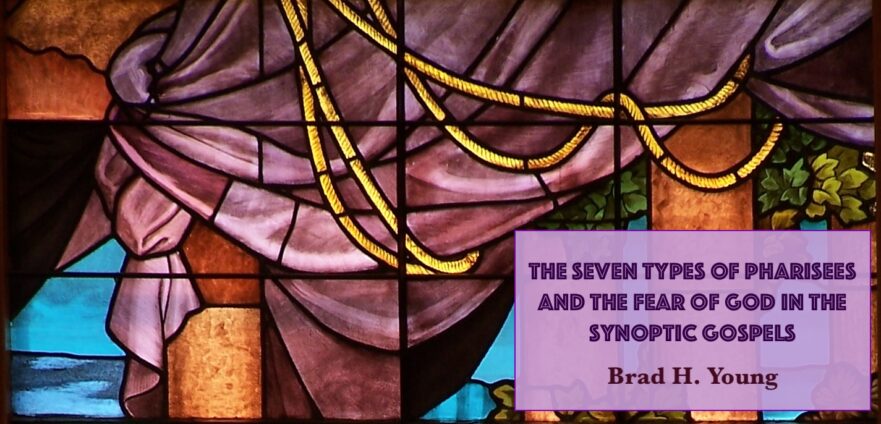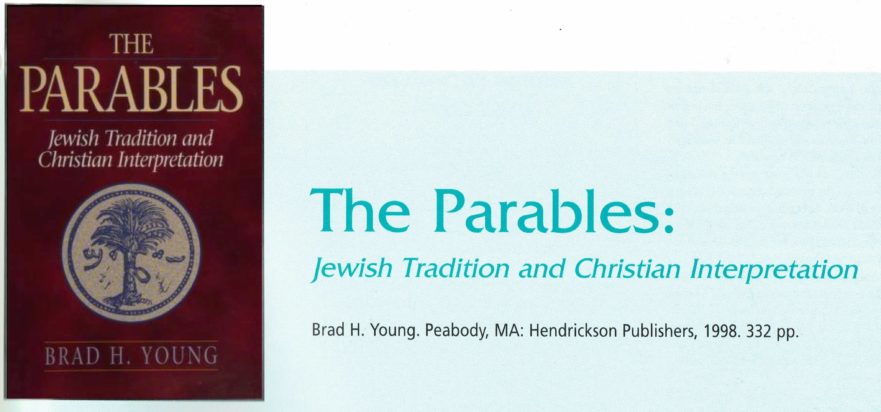Ancient Jewish sources attest to a debate over which motivation for keeping the commandments—fear or love—was most highly to be esteemed. This debate surfaces, among other places, in the Talmudic discussions of the seven types of Pharisees. These seven types and the debate over love versus fear illuminate important aspects of Jesus’ teaching.
Further Corrections to Flusser’s Judaism of the Second Temple Period

Professor Flusser did not think that Paul wrote the Epistle to the Hebrews!
Jesus Among the Rabbis: Spiritual Life, Faith Experience and Leadership

The complete 2006 lecture is now accessible to JP users. View now!
Video Clip: Brad Young on “Why Rabbinic Literature is Pertinent to the Study of the Gospels”

In this video Brad Young discusses why rabbinic literature is, unfortunately, so often dismissed as a valuable source for understanding Jesus’ message.
Brad H. Young on Interfaith Dialogue

In this video Dr. Young discusses the need for Jesus’ followers to understand and appreciate Jesus’ Jewish heritage and the Hebraic roots of the Christian faith as they engage in interfaith dialogue.
To My Teacher, Pastor and Beloved Friend

Dr. Lindsey was a creative scholar, who gave of himself to people in need.
The Power of Parables

Jesus was a master teacher. Therefore, it is significant that he relied heavily on parables. What is it about parables that makes them so moving and memorable?
Book Review: Brad Young’s Jesus and His Jewish Parables

From the outset Young argues that the best way to understand what Jesus was teaching in his parables is to try to hear him as he spoke to his people. The author argues that this can best be done by analyzing the parables of Jesus together with those told by other rabbis of his day.
Understanding Parables

The rabbis taught, “Do not underestimate the value of parables, because by means of parables a person can master the words of Torah” (Song of Songs Rabbah 1:8).
The Lord’s Prayer 10: A Hebrew Reconstruction

As a summary of Dr. Bradford Young’s series on the rabbinic background to the Lord’s Prayer, we present his English transliteration of the conjectured Hebrew original and its English translation.
The Lord’s Prayer 9: “Lead Us Not Into Temptation”

It is difficult to grasp the full impact of the Lord’s Prayer without an appreciation of its Jewish background. Today’s Christians have quite a different understanding of prayer, Scripture and faith than a Jewish teacher like Jesus. One easily can miss the great depth of Jesus’ message.
The Lord’s Prayer 8: “Forgive Us Our Debts”

Forgiveness is one of the main emphases in Jesus’ teaching. It is no wonder, then, that forgiveness is part of the short prayer that Jesus taught his disciples.
The Lord’s Prayer 7: “Give Us This Day Our Daily Bread”

The deceptively simple petition from Matthew 6:11, “Give us this day our daily bread,” has been a matter of controversy for centuries. The unusual Greek word epiousion, which is translated “daily,” is the root of the controversy. Some scholars have suggested that the original phrase contained the similar-sounding Greek word epeimi, (the next), and so meant “bread for the next day.” Nevertheless, the Latin translation of the New Testament understood the word as meaning bread needed for sustenance.
The Lord’s Prayer 6: “Thy Will Be Done”

We noted in a previous article that “Thy will be done” parallels “Thy Kingdom come.” Both phrases mean, “May you continue establishing your Kingship.” Jesus does not instruct his disciples to pray “if it is your will.” It is within God’s purpose that all men should repent and become a part of God’s reign. “May your will be accomplished” is a strong affirmative appeal.
The Lord’s Prayer 5: “Thy Kingdom Come” (Part 2)

Like Jesus, the rabbis made frequent reference to “the Kingdom of Heaven.” A familiarity with the way “Kingdom of Heaven” is used in rabbinic literature is essential for understanding its use in the Gospels.
The Lord’s Prayer 4: “Thy Kingdom Come” (Part 1)

Probably no other aspect of Jesus’ teaching has been so greatly misunderstood as the Kingdom of Heaven. Certainly, few themes are more essential for understanding Jesus.
- Page 1 of 2
- 1
- 2



